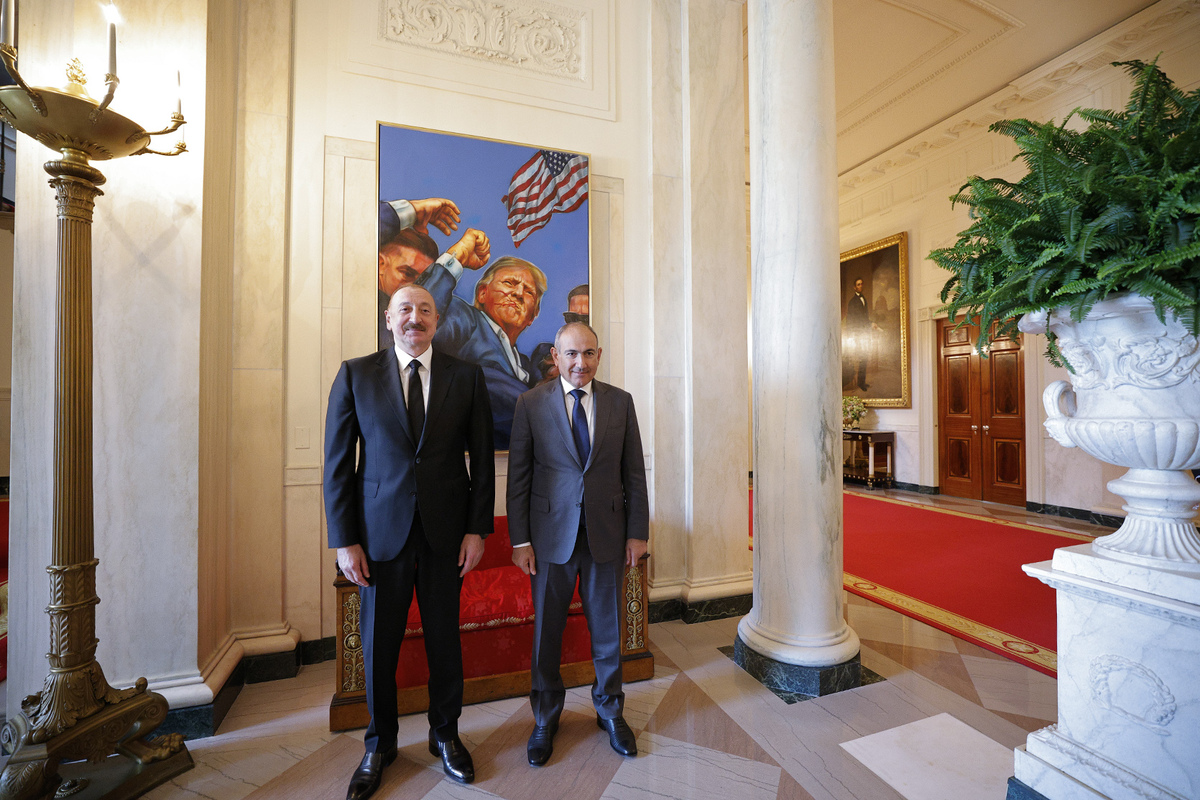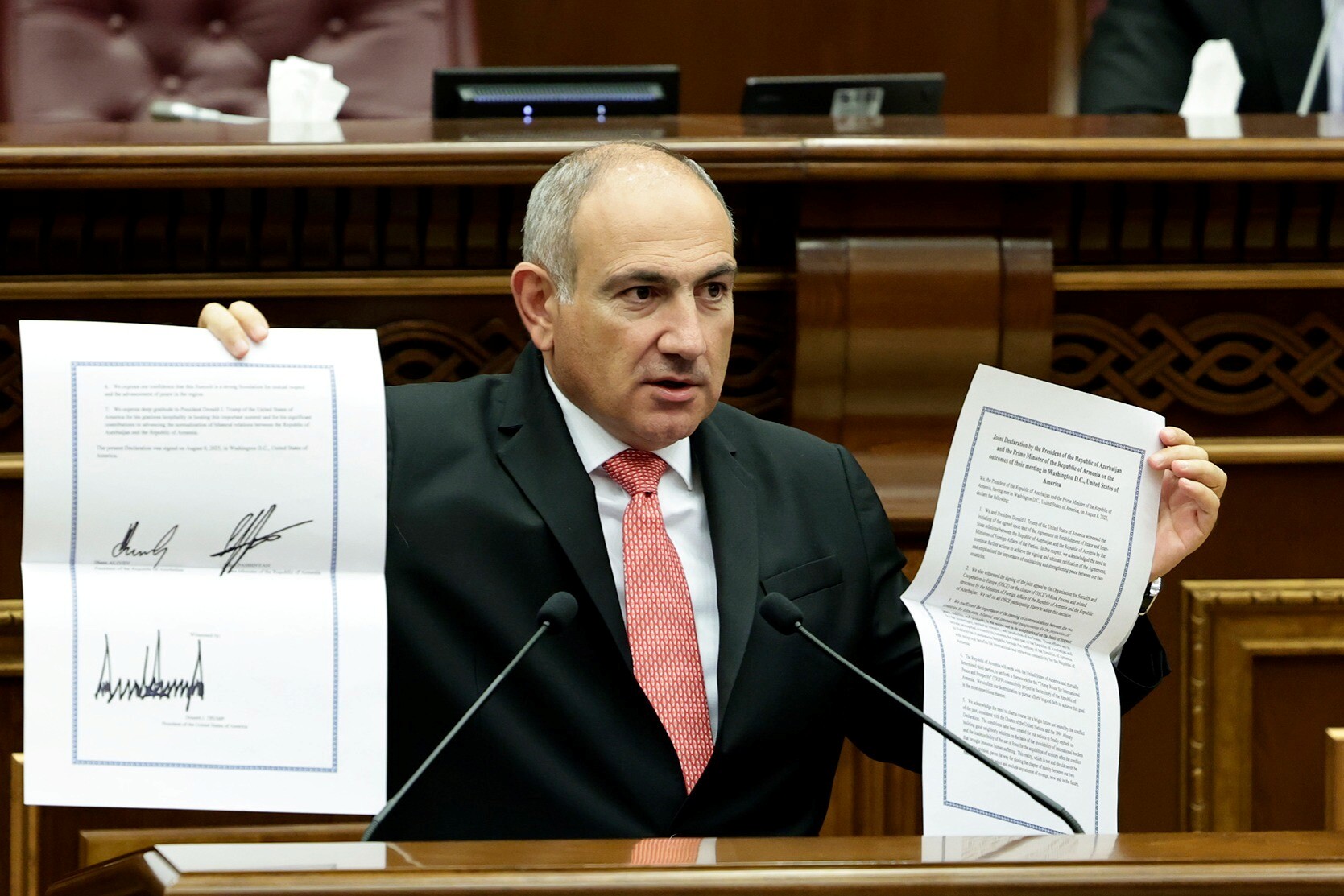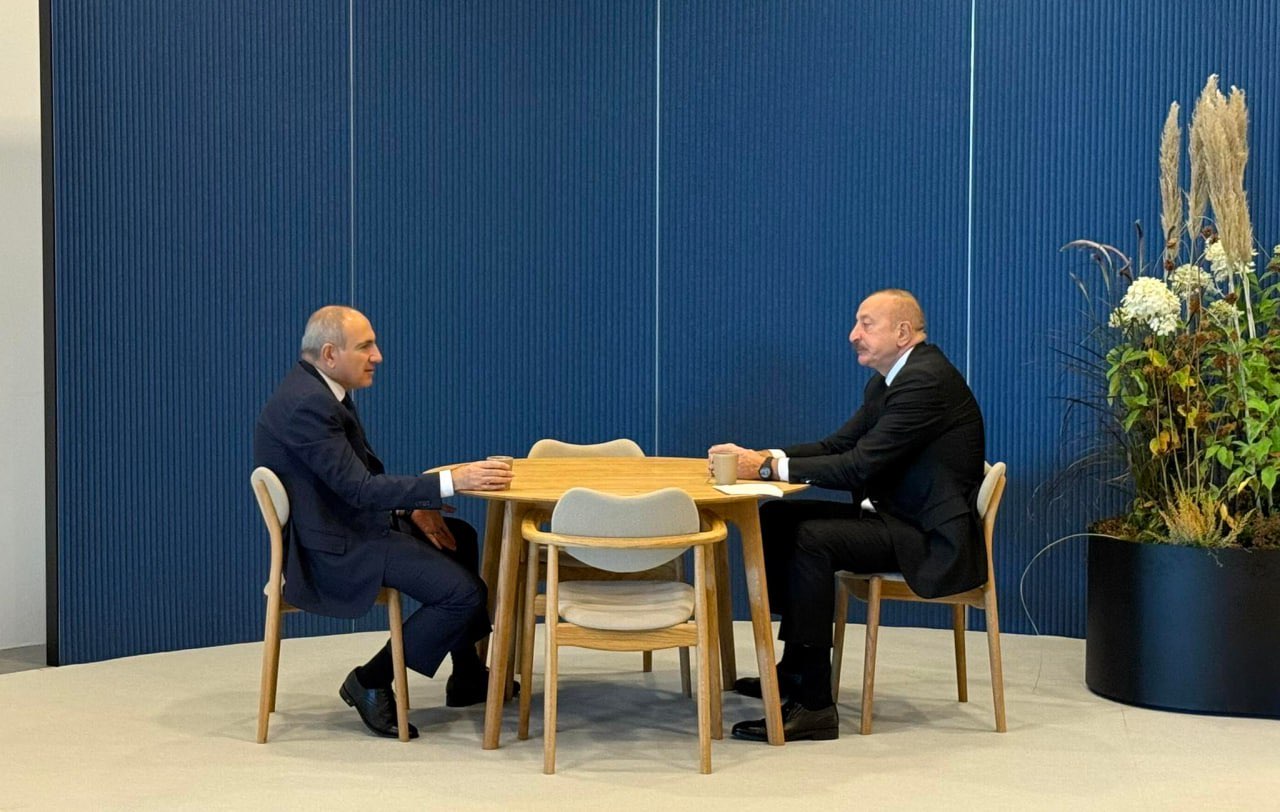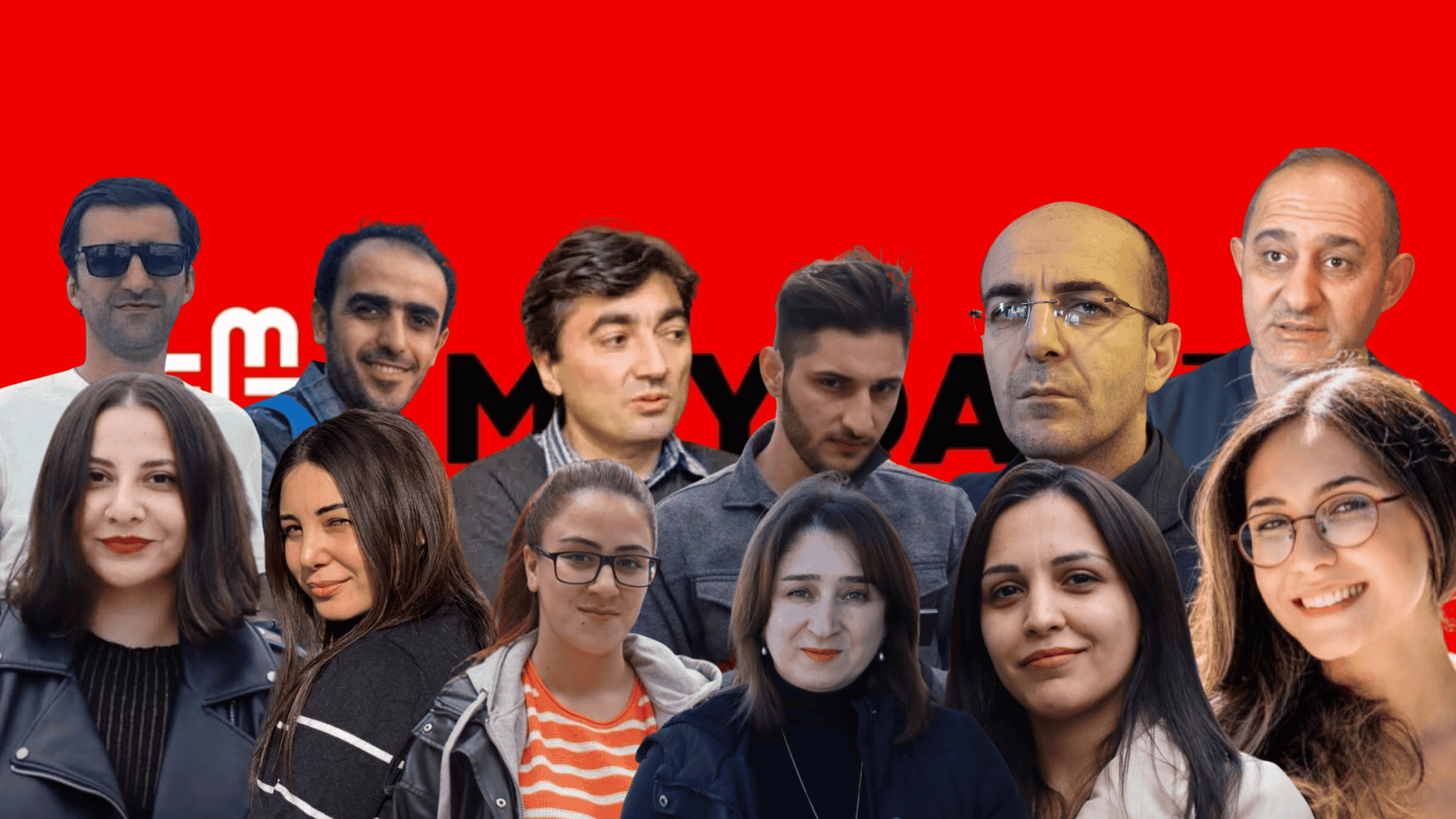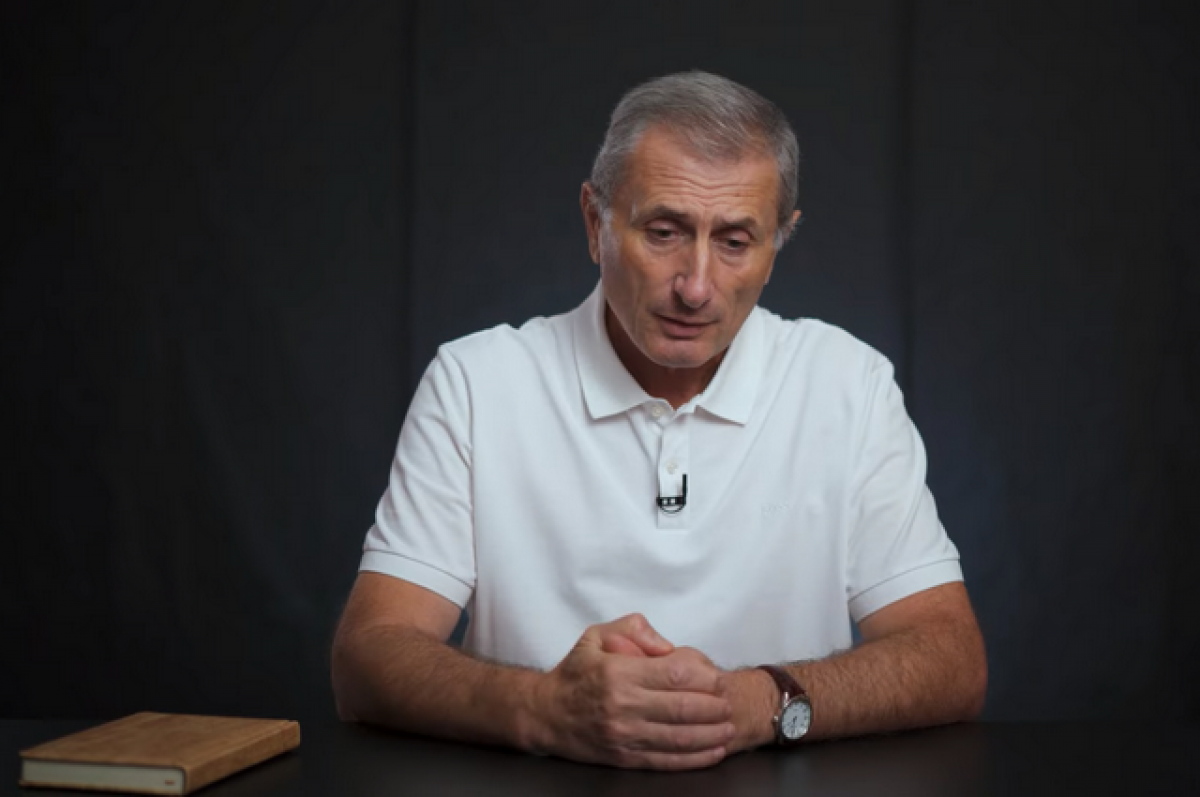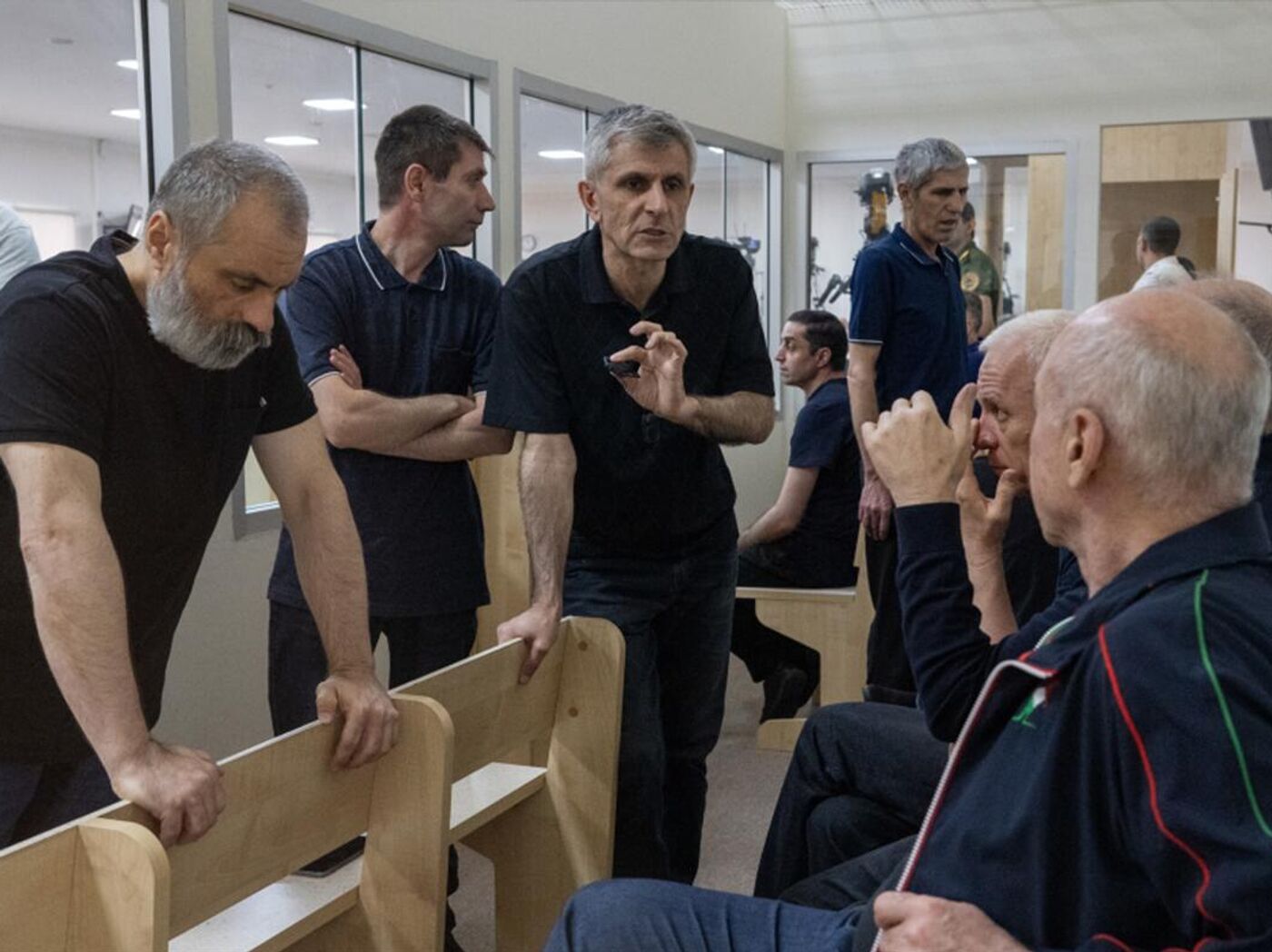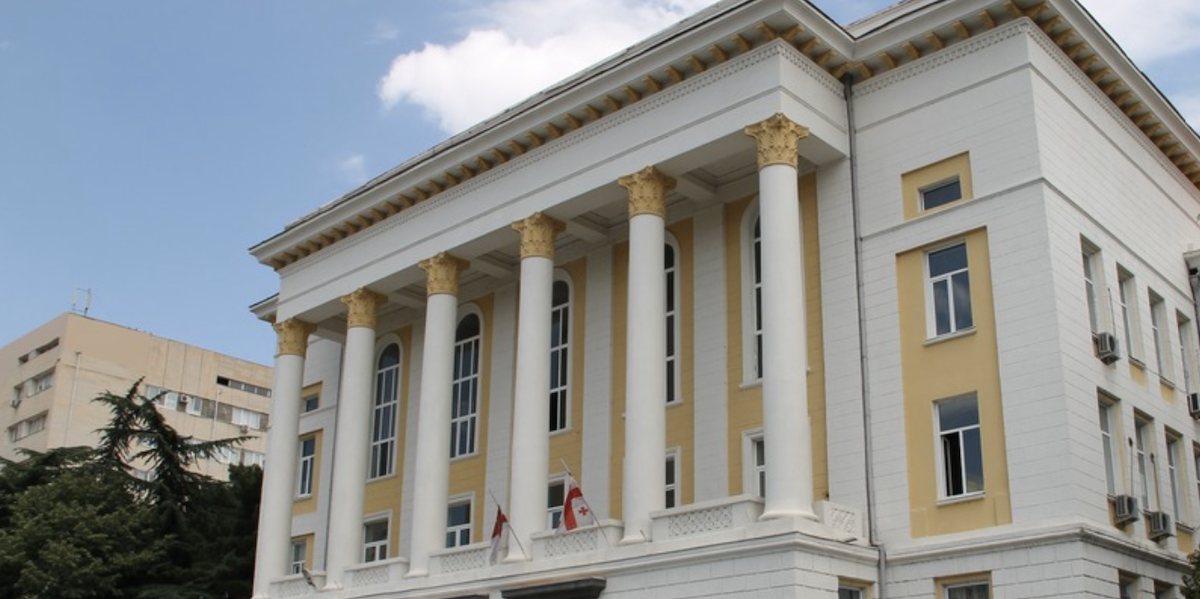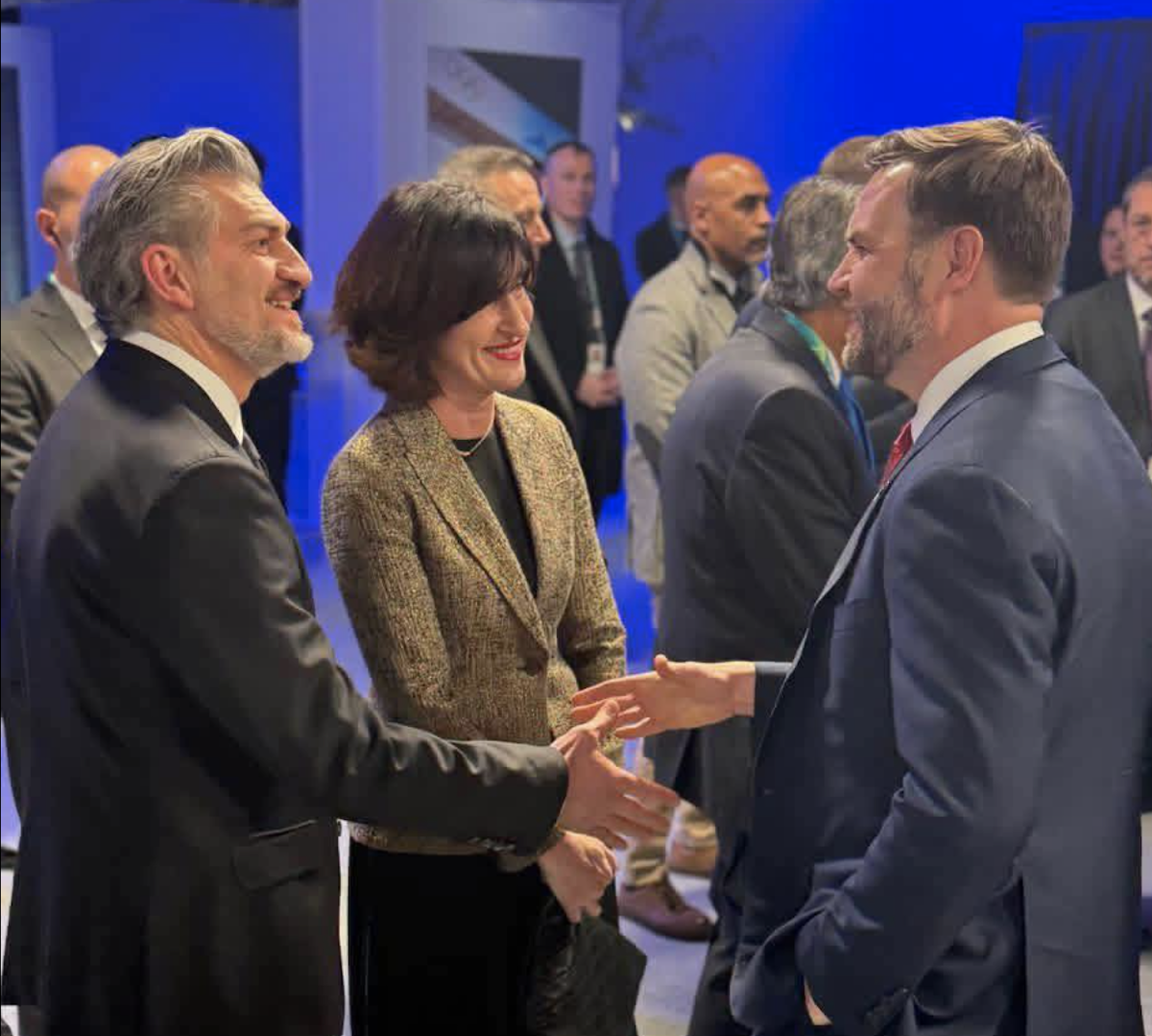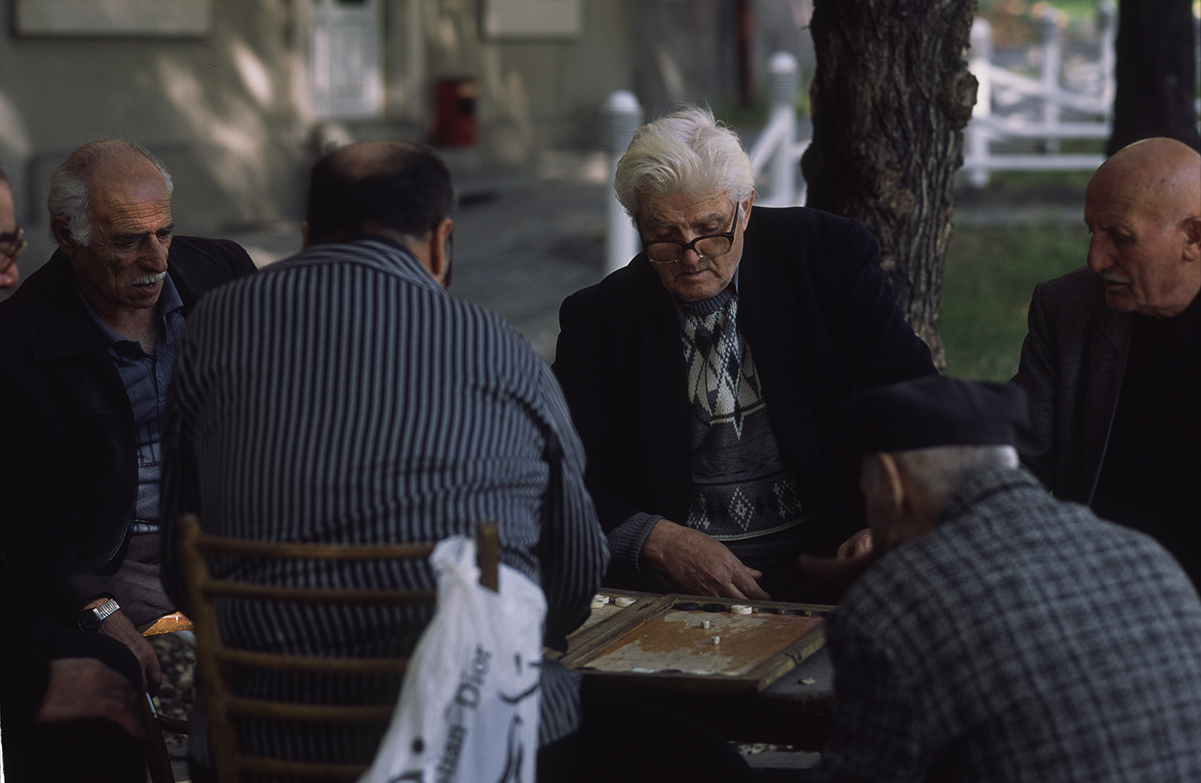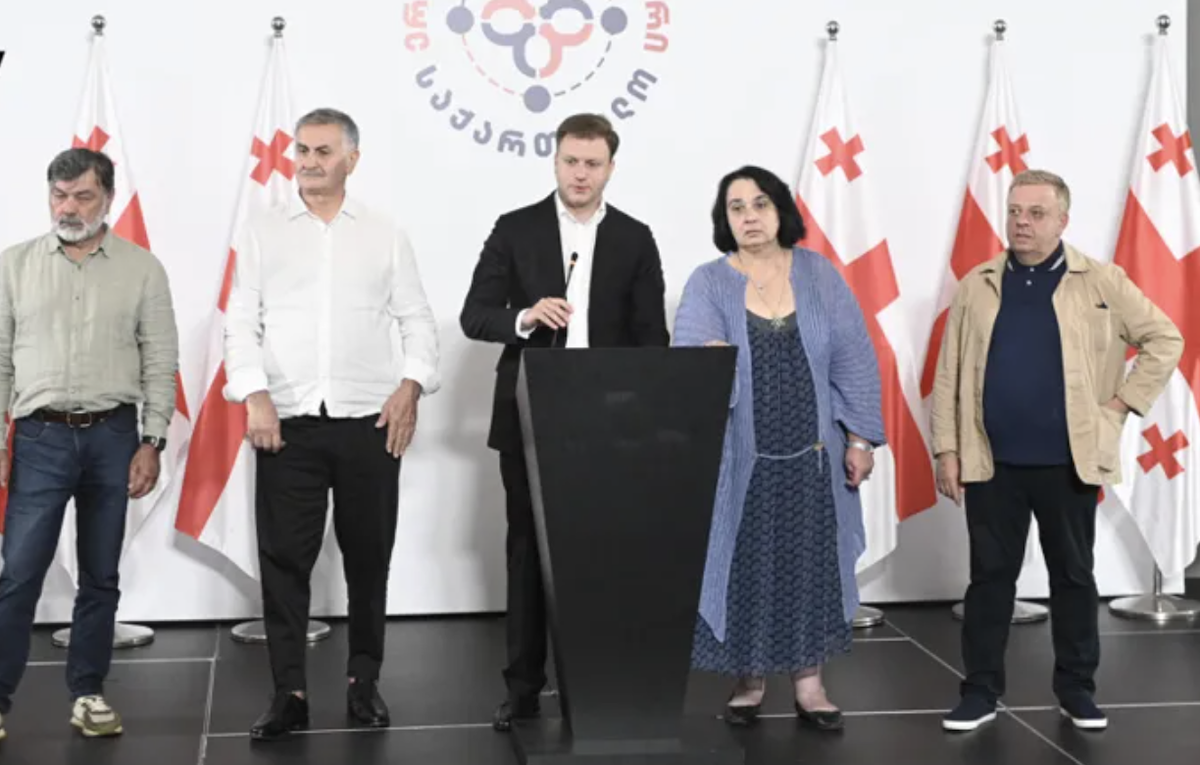Armenian political analyst: 'Aliyev sabotages peace process initiated by Trump'
Armenian analyst on Baku
Armenian experts are debating why Azerbaijan continues to push for an extraterritorial corridor through Armenian territory. This comes despite the recent agreement between the leaders of Armenia and Azerbaijan to implement the “Trump Route” program aimed at reopening regional communications. The declaration was signed by Nikol Pashinyan and Ilham Aliyev, and endorsed by the U.S. president. It highlights “the importance of reopening transport links between the two countries to ensure stability, territorial integrity, and jurisdiction in the region.”
Baku, however, continues to promote the concept of the so-called “Zangezur Corridor” — a route connecting Azerbaijan with its Nakhchivan exclave. The term is repeatedly used by President Aliyev, Foreign Minister Jeyhun Bayramov, and other senior Azerbaijani officials.
Commenting on the Gabala Declaration adopted by the leaders of the Organization of Turkic States, Bayramov once again mentioned the “Zangezur Corridor.”
“The leaders noted the strategic importance of the international transport route — the Middle Corridor — including the Zangezur Corridor. They emphasized that it will significantly contribute to strengthening ties among Turkic nations. It will also boost trade and foster intra-regional economic cooperation.”
The Armenian government has repeatedly said that it perceives the term “Zangezur Corridor” as a territorial claim.
Prime Minister Nikol Pashinyan stated that this wording cannot apply to Armenia’s sovereign territory. He even suggested that Baku uses it to describe the Horadiz–Zangilan road. This road lies entirely within Azerbaijan.
Political analyst Lilit Dallakyan believes that the Armenian authorities are right to consistently respond to Baku’s extraterritorial narratives.
However, she argues that the prime minister should no longer handle this personally. Instead, his press secretary should take charge. She added that “Aliyev is deliberately drawing Armenia into this discourse.”
“We must clearly present the situation to our international partners. We must show that Aliyev continues his destructive policy. He is sabotaging the peace process initiated by Trump. He is once again making territorial claims against Armenia,” Dallakyan said.
- “Aliyev speaks of a “corridor” and calls Armenian society “sick” after the US meeting” – opinion from Yerevan
- Pashinyan believes “Trump Route” will become a new component of Armenia’s security
- “US backs both Armenia and Azerbaijan”: view from Yerevan
Commetary
Political analyst Lilit Dallakyan says that Armenia is genuinely seeking to implement the Washington agreements.
She adds that “Aliyev still leaves himself room for manoeuvre, depending on Russia’s position in the South Caucasus.”
Dallakyan is sceptical about Aliyev’s commitment to the peace process. She believes that the Armenian authorities’ reaction to the term “Zangezur Corridor” shows that Yerevan itself remains cautious.
At the same time, she stresses that Azerbaijan will fulfil its obligations depending on the external geopolitical situation.
“Armenia and Azerbaijan are small states. They are always subject to the logic of international developments. Depending on which geopolitical centre becomes more influential in the South Caucasus, Aliyev will adjust accordingly. We will have to wait and see what changes occur on the international stage. This applies particularly to the Russia–Ukraine conflict and Russia–US relations,” she said.
Dallakyan also explains why, even after the Washington agreements, Yerevan and Baku have not rushed to withdraw their signatures from the trilateral statement of 9 November 2020.
She notes that Russia mediated the signing of this document, which ended the Second Karabakh War.
“This leads me to believe that the leaders of both countries are waiting to see who will gain more influence in the Russia–West conflict,” she added.untries are waiting to… see who will emerge stronger in the Russia–West conflict.”
SHe emphasizes that, according to the 9 November statement, Russia’s FSB border service was assigned control over the reopened roads, and a road controlled by another state can itself be considered a “corridor.”
The analyst adds that Armenia continues to respond to Baku’s talk of an extraterritorial road precisely because the 9 November document has not been withdrawn:
“Russia has not left the South Caucasus, and we need to understand what leverage Moscow has to annul the Washington agreements. I do not believe that Putin has laid down his arms. All his statements, and those of his propagandists, indicate otherwise.”
With Russian border guards still in Armenia and the railway under Russian control, Lilit Dallakyan considers a U.S. presence essential. As she notes, this presence must come “with security guarantees, so that Putin does not get the idea that he can destabilize the situation through hybrid attacks.”
Commenting on tensions in Russia–Azerbaijan relations, she noted that Aliyev is seeking to normalise ties with the West, as Russia is currently in a difficult position.
However, the analyst suggests that if the West fails to advance its interests in the conflict with Russia, the Azerbaijani president may pivot back toward Putin. According to Dallakyan, “Aliyev shifts his points of leverage depending on who is stronger.”
She also points out that the U.S. president, “acting as a peacemaker, faces difficulties in upholding his words and commitments”:
“For example, Trump says that Putin has agreed to meet with Zelensky and that European countries should ensure Ukraine’s security. The next day, Peskov claims that no such agreement exists. It leads me to think that Trump is simply confusing reality with his own wishes.”
Dallakyan stresses the significance of the upcoming U.S. midterm elections next year:
“There are concerns that Trump may become preoccupied with domestic politics and forget the promises and commitments he made regarding the South Caucasus. If our adversary were Azerbaijan alone, Armenia could fully address the issue. But the president of Russia orchestrated events in the region, including 9 November. And Trump has so far not taken concrete steps on Ukraine. The South Caucasus is no less important to Putin than Ukraine. Will Trump confront Putin in the South Caucasus? I am not talking about military confrontation, but at least verbally.”
Armenian analyst on Baku










